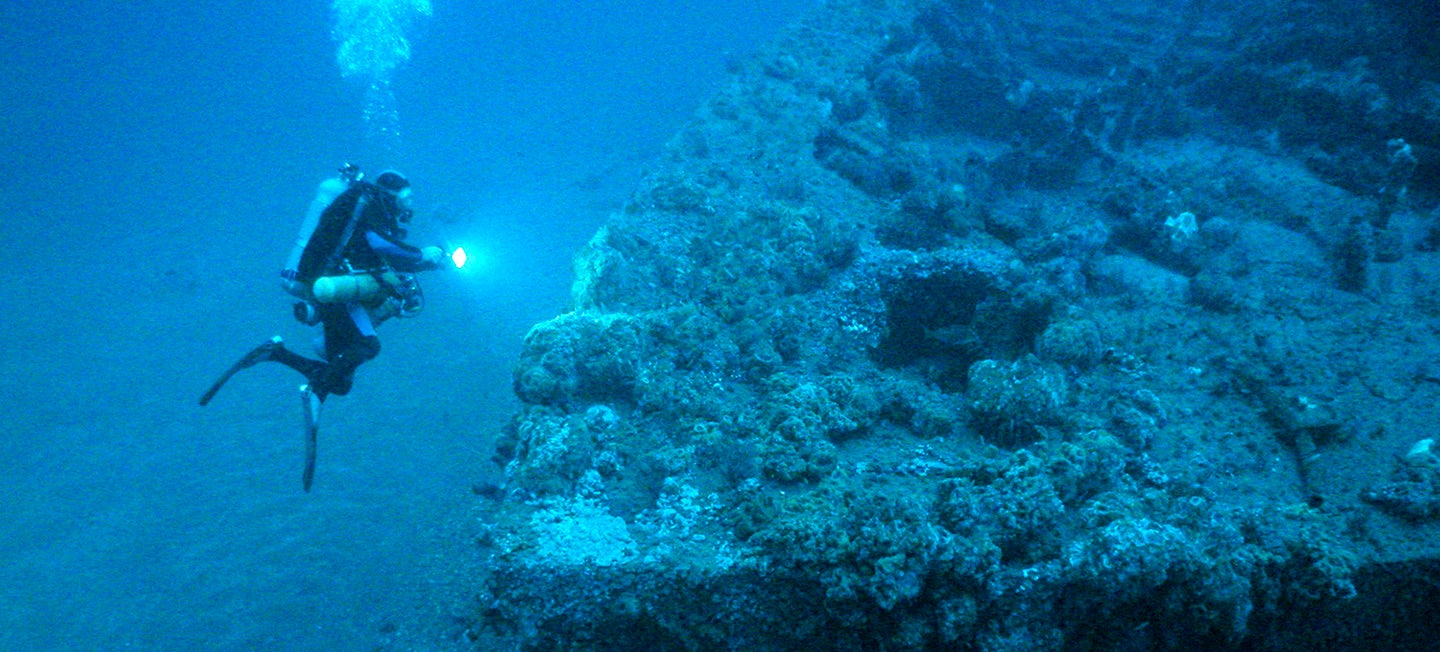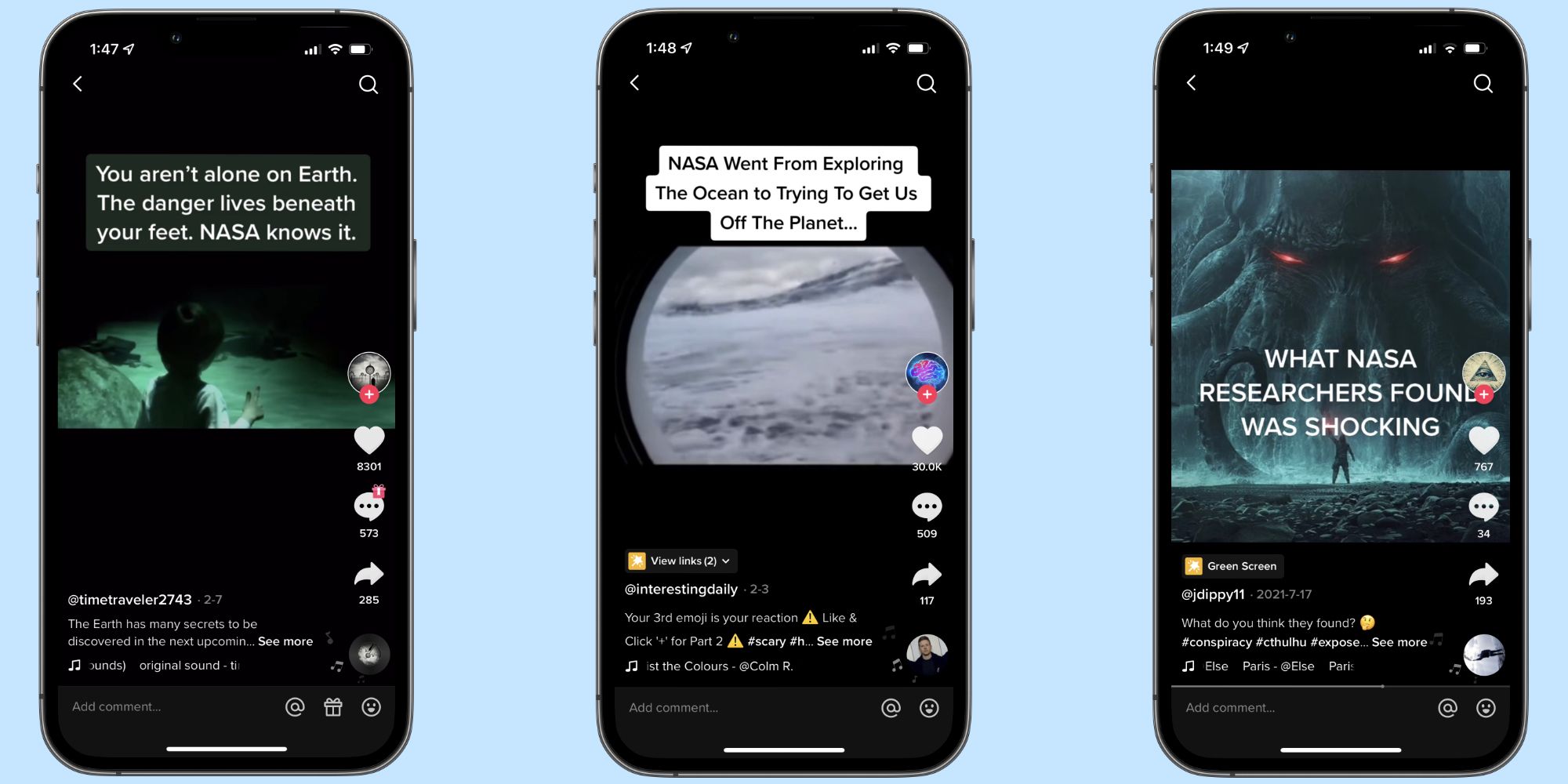Why Did NASA Stop Exploring The Sea? Uncovering The Untold Story
Ever wondered why NASA, the big dog of space exploration, decided to hang up its ocean-diving boots? It’s a question that’s been floating around for years, and today we’re diving deep—literally and figuratively—to uncover the truth. NASA’s journey into the sea wasn’t just about swimming with sharks; it was a groundbreaking chapter in scientific history. But why did they stop? Let’s find out.
Picture this: NASA, the organization synonymous with rockets and astronauts, was also once a pioneer in underwater exploration. Sounds kinda wild, right? Well, it’s true. But like all good things, this chapter came to an end. The reasons behind it are as fascinating as they are complex. Stick around, and we’ll break it all down for you.
So, grab your snorkel and let’s dive into the depths of this story. Why did NASA stop exploring the sea? Was it budget cuts, shifting priorities, or something else entirely? Let’s unravel the mystery together.
Read also:Unblocked Games G 2 Your Ultimate Playground Without Limits
Table of Contents
1. NASA's Ocean Adventures: A Brief History
2. The Science Behind Underwater Exploration
3. Why Did NASA Stop Exploring the Sea?
4. Budget Constraints: The Elephant in the Room
5. Space vs. Sea: A Shift in Priorities
6. Technological Challenges in Ocean Exploration
Read also:Ximenasaenz The Rising Star Of The Digital Age
7. Environmental Concerns and Ethical Dilemmas
8. What Did NASA Achieve in the Ocean?
9. Could NASA Return to the Sea?
10. Final Thoughts: The Future of Ocean Exploration
NASA's Ocean Adventures: A Brief History
Back in the day, NASA wasn’t just about launching rockets into space. Believe it or not, they were also diving deep into the mysteries of the ocean. The 1960s and 70s saw some pretty epic underwater projects, like the SEALAB missions. These missions were all about testing human endurance in extreme environments and learning how to live underwater for extended periods.
But why was NASA so interested in the sea? Well, it turns out that the ocean and space have a lot in common. Both are hostile environments that require specialized equipment and training. By studying the sea, NASA hoped to gain insights that could be applied to space exploration. Cool, right?
The Science Behind Underwater Exploration
Exploring the ocean is no walk in the park. It’s a complex endeavor that requires cutting-edge technology and a deep understanding of marine science. NASA’s underwater missions were all about pushing the boundaries of what we know about the ocean. They were studying everything from marine life to geological formations.
One of the coolest things about these missions was the use of underwater habitats. These were like mini space stations, where scientists could live and work underwater for weeks at a time. It was a game-changer for ocean exploration, and it paved the way for future advancements.
Key Technologies Used in Ocean Exploration
- Underwater habitats
- Submersibles
- ROVs (Remotely Operated Vehicles)
- Advanced diving gear
Why Did NASA Stop Exploring the Sea?
Now, here’s the big question: why did NASA stop exploring the sea? The answer isn’t as simple as you might think. There were several factors at play, and it wasn’t just about money. Sure, budget cuts played a role, but there were other reasons too.
One of the main issues was the shift in priorities. As the space race heated up, NASA’s focus shifted from the ocean to the stars. Space exploration became the priority, and ocean research took a backseat. It was a tough call, but that’s the reality of working with limited resources.
Budget Constraints: The Elephant in the Room
Let’s talk about the elephant in the room: money. Exploring the ocean isn’t cheap, and neither is space exploration. NASA had to make some tough decisions about where to allocate its resources. In the end, space exploration won out, and the ocean projects were put on hold.
But it wasn’t just about the money. There were also concerns about the return on investment. Space exploration had the potential for bigger, more visible achievements, like landing on the moon. The ocean, on the other hand, was seen as a bit more… well, murky. It wasn’t as glamorous, and the public wasn’t as excited about it.
Space vs. Sea: A Shift in Priorities
The shift from ocean to space exploration was a natural progression for NASA. As the organization grew, so did its ambitions. The ocean was just the beginning of their journey into extreme environments. Space was the next frontier, and it was where the big bucks were.
But that doesn’t mean NASA forgot about the ocean entirely. They’ve continued to collaborate with other organizations on ocean-related projects. It’s just that space exploration became their primary focus. And who can blame them? The moon landing was one of the greatest achievements in human history.
Technological Challenges in Ocean Exploration
Exploring the ocean is no easy feat. It’s a harsh environment that poses unique challenges for scientists and engineers. From extreme pressure to limited visibility, there are plenty of obstacles to overcome. And let’s not forget about the cost of developing and maintaining the technology needed for these missions.
But despite these challenges, NASA made some incredible advancements in ocean exploration. Their work laid the foundation for future missions and inspired a new generation of marine scientists. It’s a legacy that continues to this day.
Top Challenges in Ocean Exploration
- Extreme pressure
- Limited visibility
- Cold temperatures
- Corrosion of equipment
Environmental Concerns and Ethical Dilemmas
As we dive deeper into this topic, we can’t ignore the environmental concerns surrounding ocean exploration. The ocean is a delicate ecosystem, and any human activity can have unintended consequences. NASA was mindful of this, and they took steps to minimize their impact on the environment.
But there were also ethical dilemmas to consider. Should humans be interfering with the natural world in such a profound way? It’s a question that continues to be debated today. As we push the boundaries of what we know about the ocean, we must also consider the moral implications of our actions.
What Did NASA Achieve in the Ocean?
Despite the challenges, NASA achieved some pretty amazing things in the ocean. They conducted groundbreaking research that expanded our understanding of marine science. They developed new technologies that are still used today. And they inspired a generation of scientists to pursue careers in ocean exploration.
One of the most significant achievements was the development of underwater habitats. These habitats allowed scientists to live and work underwater for extended periods, opening up new possibilities for research. It was a game-changer for ocean exploration, and it paved the way for future advancements.
Could NASA Return to the Sea?
So, could NASA return to the sea? The answer is yes, but it would require a significant shift in priorities. With the growing interest in ocean exploration, it’s not entirely out of the question. In fact, NASA has already expressed interest in collaborating with other organizations on future ocean missions.
But there are challenges to overcome. Budget constraints, technological limitations, and environmental concerns are all factors that need to be addressed. It won’t be easy, but with the right resources and commitment, it’s definitely possible.
Final Thoughts: The Future of Ocean Exploration
As we wrap up this deep dive into NASA’s ocean adventures, it’s clear that their work in the sea was just as important as their work in space. They achieved incredible things, and their legacy continues to inspire scientists around the world. But why did NASA stop exploring the sea? It was a combination of factors, from budget constraints to shifting priorities.
So, what’s next for ocean exploration? With new technologies and a growing interest in the ocean, the future looks bright. NASA may not be leading the charge, but they’ll undoubtedly play a role in this exciting new chapter of scientific discovery. Stick around, because the best is yet to come.
What are your thoughts on NASA’s ocean adventures? Do you think they should return to the sea? Let us know in the comments below, and don’t forget to share this article with your friends. Together, we can keep the conversation going and inspire a new generation of ocean explorers.
Article Recommendations


